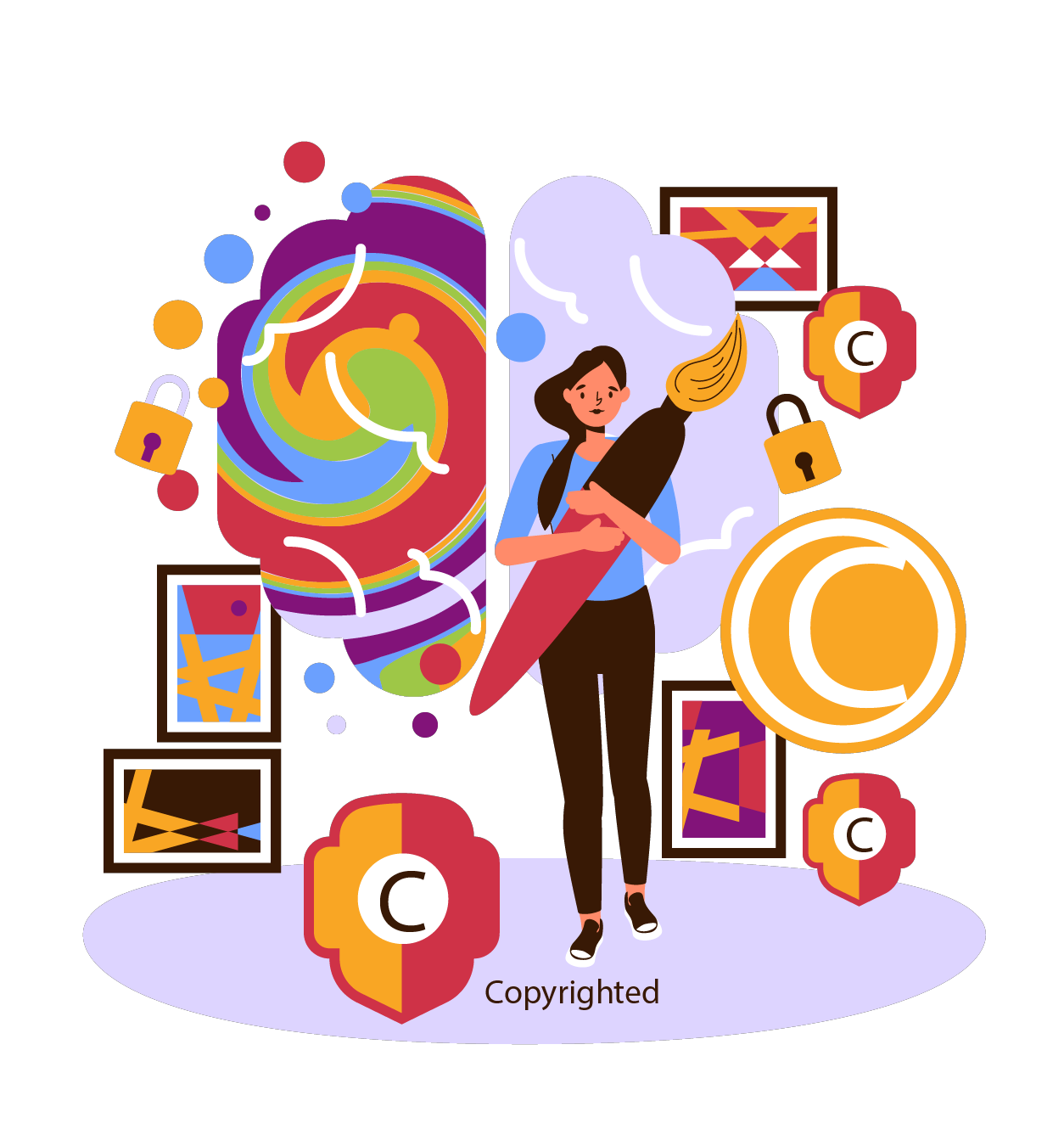
Copyrights
Copyright is an automatic right that comes into existence the moment a work is created.
In the era of Internet and Information technology, where content creation, web development and information exchange has transcended the state borders, protection of creative work has taken a precedence especially when creative work is at worldwide reach of the internet.
Though registration of copyright is not mandatory, however, it is advisable to register a copyright in order to avail legal protection from infringement of your original work as well as establish as a prima facie evidence of ownership of your work.
Our team of proficient lawyers assist our creators in filing copyright applications in Indian as well as in foreign jurisdictions.

We also provide copyright search and clearance services. We advise on acquisition, how to protect your work and deal with copyright licensing, infringement and plagiarism.
As per the Indian Copyright Act 1957 as amended in 2012, all original, newly published literary, dramatic, musical, artistic works, cinematographic works and sound recordings can be sought for copyright protection. Copyright confers the owner the right to issue, translate, adapt and make copies of the work or authorise any third party to do so.
Copyright subsists in published literary, dramatic, musical and artistic works published within the lifetime of the author until 60 years from the beginning of the calendar year, next following the year in which the author dies.
Get In Touch
Frequently Asked Questions
I) Literary, dramatic and musical work. Computer programs/software are covered within the definition of literary work;
II) Artistic work;
III) Cinematographic films which include sound track and video films;
IV) Record-any disc, tape, perforated roll or other device.
a. In the case of literary, dramatic or musical work, not being a computer program: –
I) to reproduce the work in any material form including the storing of it in any medium by electronic means;
II) to issue copies of the work to the public not being copies already in circulation;
III) to perform the work in public, or communicate it to the public;
IV) to make any cinematography film or sound recording in respect of the work;
V) to make any translation of the work; to make any adaptation of the work;
VI) to do, in relation to a translation or an adaption of the Work, any of the acts specified in relation to the work in Sub-clauses (i) to (vi);
b. In the case of computer program –
to do any acts specified in clause (a);
to sell or give on hire, or offer for sale or hire any copy of the computer program, regardless of whether such copy has been sold or given on hire on earlier occasions;
c. In the case of an artistic work –
to reproduce the work in any material form including depiction in three dimensions of a two dimensional work or in two dimensions of a three dimensional work;
to communicate the work to the public;
to issue copies of the work to the public not being copies already in circulation;
to include the work in any cinematography film;
to make any adaptation of the work;
to do, in relation to a translation or an adaption of the work, any of the acts specified in relation to the work in sub-clause (i) to (vi);
d. In the case of a cinematography film –
to make a copy of the film including a photography of. Any image forming part thereof;
to sell or give on hire or offer for sale or hire, any copy of the film, regardless of whether such copy has been sold or given on hire on earlier occasions;
to communicate the film to the public;
e. In the case of sound recording –
to make any other sound recording embodying it;
to sell or give on hire or offer for sale or hire, any copy of the, sound recording, regardless of whether such copy has been sold or given on hire on earlier occasions;
to communicate the sound recording to the public;
Explanation: – For the purpose of this section, a copy which has been sold once shall be deemed to be a copy already in circulation.
Computer includes any electronics or similar device having information processing capabilities.
- If published within the life time of the author of a literary work, the term is for the life time of the author plus 60 years.
- For cinematography films, records, photographs, posthumous publications, anonymous publication, works of government and international agencies, the term is 60 years from the beginning of the calendar year following the year in which the work was published.
- For broadcasting, the term is 25 years from the beginning of the calendar year following the year, in which the broadcast was made.
No. In the case of a program made in the course of author’s employment under a contract of service or apprenticeship, the employer shall, in the absence of any agreement to the contrary, be the first owner of the copyright.
The copyright in works created by third parties on commission do not automatically belong to commissioning party. If the third party is an independent contractor, it is essential for the commissioning party to obtain the copyright through a written deed of assignment. It is a common misconception that the copyright automatically belongs to the commissioning party. Thus, it is only where the developer is an employee creating the work under a contract of service that the rights belong to the employer.
